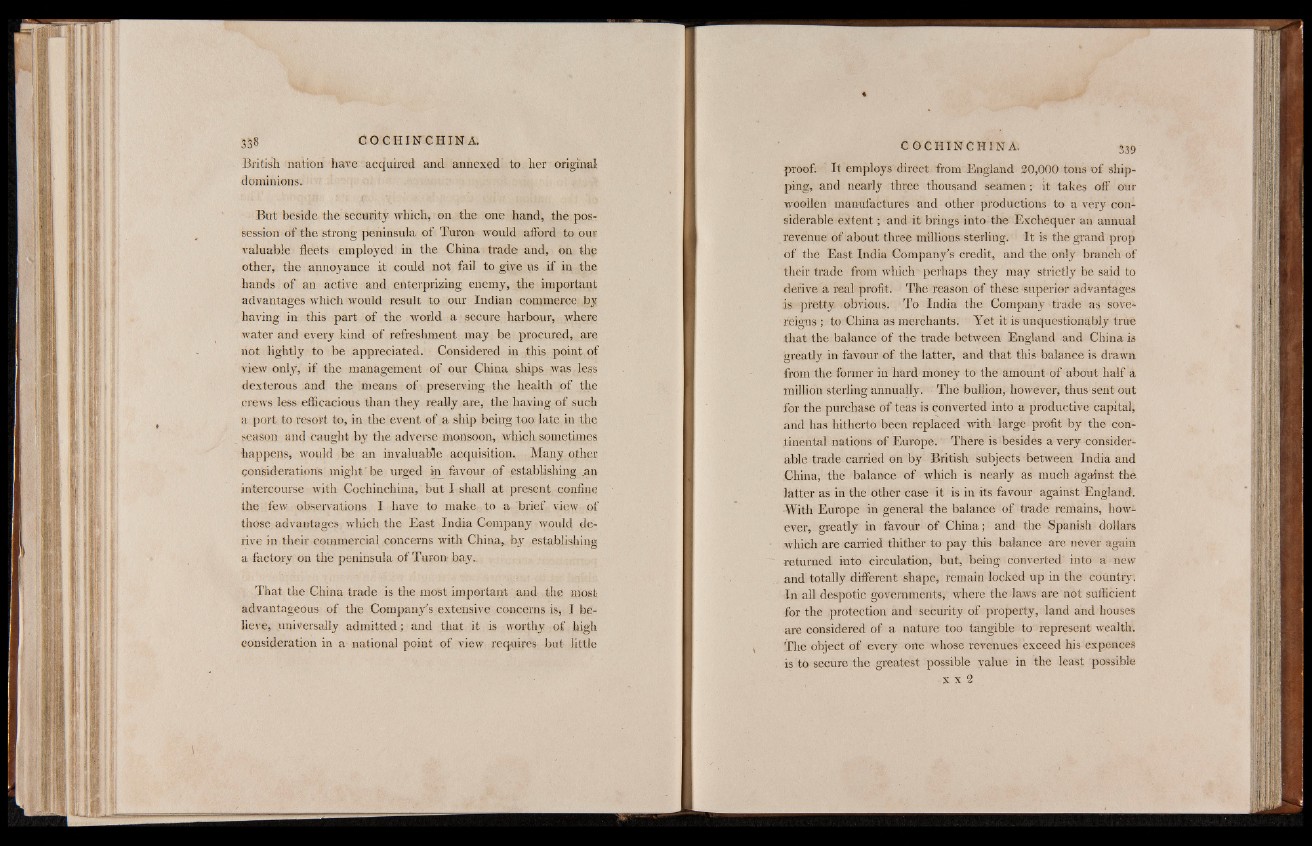
British nation have acquired and annexed to her original
dominions.
But beside the security which, on the one hand, the possession
of the strong peninsula of Turon would afford to our
valuable fleets employed in the China trade and, on the
other, the annoyance it could not fail to give us if in the
hands of an active and enterprizing enemy, the important
advantages which would result to our Indian commerce by
having in this part of the world a secure harbour, where
water and every kind of refreshment may be procured, are
not lightly to be appreciated. Considered in this point of
view only, if the management of our China ships was less
dexterous and the means of preserving the health of the
crews less efficacious than they really are, the having of such
a port to resort to, in the event of a ship being too late in the
season and caught by the adverse monsoon, which sometimes
happens, would be an invaluable acquisition. Many other
considerations might be urged in_ favour of establishing _an
intercourse with Cochinchina, but I shall at present confine
the few observations I have to make to a brief view of
those advantages, which the East India Company would derive
in their commercial concerns with China,, by establishing
a factory on the peninsula of Turon bay..
That the China trade is the most important and the most
advantageous of the Company’s extensive concerns is, I believe,
universally admitted; and that it is worthy of high
consideration in a national point of view requires but little
proof. It employs direct from England 20,000 tons of shipping,
and nearly three thousand seamen; it takes off our
woollen manufactures and other productions to a very considerable
extent; and it brings into the Exchequer an annual
revenue of about three millions sterling, It is the grand prop
of the East India Company’s credit, and the only branch of
their trade from which perhaps they may strictly be said to
derive a real profit. The reason of these 'superior advantages
is pretty obvious. To India the Company trade as sovereigns;
to China as merchants. Yet it is unquestionably true
that the balance of the trade between England and China is
greatly in favour of the latter, and that this balance is drawn
from the former in hard money to the amount of about half a
million sterling annually. The bullion, however, thus sent out
for the purchase of teas is converted into a productive capital,
and has hitherto been replaced with large profit by the continental
nations of Europe. There is besides a very considerable
trade carried on by British subjects between India and
China, the balance of which is nearly as much against the
latter as in the other case it is in its favour against England.
■With Europe in general the balance of trade remains, however,
greatly in favour of China; and the Spanish dollars
which are carried thither to pay this balance are never again
returned into circulation, but, being converted into a new
and totally different shape, remain locked up in the country.
In all despotic governments, where the laws are not sufficient
for the protection and security of property, land and houses
are considered of a nature too tangible to represent wealth.
The object of every one whose revenues exceed his expences
is to secure the greatest possible value in the least possible
x x 2